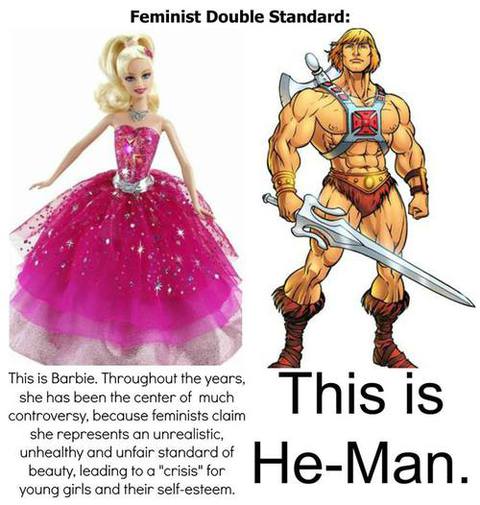Fit/Fat Shaming, Judging, and Simply Being You
You’re not your job. You’re not how much money you have in the bank.
You’re not the car you drive. You’re not the contents of your wallet.
You’re not your fucking khakis. – Tyler Durdin, Fight Club
Every now and then I try to pay attention to what’s going on in the world, and every now and then something comes up that makes me shake my head a little. I was recently watching a news story where the hosts were debating the concept of fat shaming and fit shaming. I had no idea what they were talking about, but apparently it’s become a thing in the world.
Apparently a lot of fury was raised when a mother of 3 put up a pic of herself with her kids, while wearing a sports bra and short shorts with the caption “What’s your excuse?” beneath it. The intent of the pic was to show that even a busy mother could still make exercise a priority in her life without sacrificing her time with her kids.
This was taken to mean that she was bullying people who were also mothers and who didn’t look the same way she did, which then lead to her being called a bully.
Sure, she could have changed her wording, as it is somewhat “tongue in cheek” to say that she was somehow better than others, but this is nothing new. The world seems to have taken on this strange tone of oneupsmanship that I’ve never really understood, and a lot of it seems (please read, SEEMS) to be coming from women towards other women.
This is an example of something called “fitspo,” or fitness inspiration. Essentially, the goal is to use pictures of fit people showing them working out with some catchy slogan underneath designed to make you want to work out just like them in order to get their body and have all your dreams become reality. If that’s something that makes you take positive action in your life in order to do something beneficial, go for it.
Many of them make absolutely no sense though, and seem to be a cover-up of a disordered thought process on what diet and exercise really should be. A simple explanation of this would be this awesome slideshow that uses fitness quotes over images of people drinking to excess. While we could argue that drinking and working out are 2 completely different things (and they are), the point was to show that anything done in excess could be dangerous (and they are).
With the rise of social media and the bathroom selfie at the gym showing you’re working out, there definitely seems to be an air of superiority complex in those who work out over those who don’t. (I won’t even start discussing how bad of an idea it is to take pictures in a change room, especially if there’s a chance of catching someone half-naked in the background, and potentially a child, especially if it’s in a community facility.) This can make those who want and need to work out the most to not want to even set foot in a gym, as they feel they would be judged by every single person in the room. This is one of the reasons Planet Fitness came out with their strange concept of a “No Judgement Zone” which seems to still find a way to judge bodybuilders and more advanced lifters, but whatever.
Are we as a society so entrenched in the notion of judging others that we have to have companies devote entire marketing campaigns to the fact that they don’t judge?
Have you ever stood in line at a check out in a grocery store and looked at the covers of some of the magazines? They all feature celebrities, and all talk about how they’re either too fat or too thin. They then feature an air-brushed and well lit celebrity talking about how they got their fit body and how you can too (they conveniently forget to mention the airbrushing and lighting aspect), essentially saying if you don’t fit their ideal you’re a horrible person.
This goes back to the mom who posted the selfie with her kids. If you don’t lose the weight like she did, many would think they weren’t trying hard enough and wind up beating themselves up. What’s worse is they would probably hear it from other moms, their own family, maybe their friends, etc. What doesn’t get mentioned a lot is the fact that prengancy and delivery is really tough on the inner workings of the female anatomy, and can result in some significant issues with pelvic floor function, rectus diastasi, and other serious complications where exercise may not be a viable option.
On the other hand, if you do manage to lose weight following a pregnancy and want to show it off, you’re considered a bad person who probably took away from your kids and are selfish for doing so.
It seems no matter what you do, you just can’t win or escape being judged in a negative light.
This judgement can come across in a lot of different forms as well. For instance, I put up a video clip of my wife deadlifting a PR a few days ago.
[embedplusvideo height=”477″ width=”600″ editlink=”http://bit.ly/18bzafB” standard=”http://www.youtube.com/v/uPvisXyIv28?fs=1″ vars=”ytid=uPvisXyIv28&width=600&height=477&start=&stop=&rs=w&hd=0&autoplay=0&react=1&chapters=¬es=” id=”ep2613″ /]
For some background, 3 years ago she was receiving prolotherapy injections into her low back and SI joint to regain strength in the area following a couple of pretty nasty cycling crashes. She’s a competitive triathlete and cyclist, and has always had a slim build, what you could call the classic ectomorph build. It’s taken her 3 years of consistent, patient work to get to this level of strength and stability, and it’s a big deal for her to hit a 1.5 times bodyweight deadlift, even if it’s not a world record.
Following posting this on Facebook, many of the comments were positive and congratulatory, but one interesting comment seemed to stir some controversy.
“I like women that eat food.”
This was followed by a discussion of what the comment meant, with one commenter (a woman) feeling the comment was meant to say she was fat, while another commenter (a man) felt it meant to say she was scrawny.
The comment by itself was fairly innocent and benign, but the interpretation of the comment by those reading it was possibly a symptom of our culture more than anything.
Looking at magazine covers again, most geared towards women talk about losing weight, getting skinny, and having “toned, lean muscles,” whereas ones geared towards men talk about building muscle, getting jacked, and becoming a monster. We could even look back at childhood toys for the reinforcement of body image ideals.
Even the greatest symbol of boys childhood movie imaginations, Luke Skywalker, isn’t immune to the changing body image issues over the years.
 Luke and Han are apparently also hitting up cycles of D-Bol in the Millenium Falcon in order to prepare for an epic arm wrestling match against the Emperor.
Luke and Han are apparently also hitting up cycles of D-Bol in the Millenium Falcon in order to prepare for an epic arm wrestling match against the Emperor.
For this reason, many magazines and media outlets talk about how guys should only lift heavy weights with the sole purpose of hypertrophy and should always have an 8-pack, while women should do everything in their power to only burn calories, never build any muscle for fear of becoming “bulky” in order to achieve that ultra feminine look yet still have curves and boobs.
One of the worst proponents of this concept is Tracy Anderson. I’ve discussed her Methods in the past, so I won’t devote much time to them here, but I will say that her focus on telling women that they shouldn’t lift anything over 3 lbs or they will get bulky, as well as perpetuating the stereotype that women should all be “teeny tiny” is incredibly unfortunate and very judgemental. By her standards, Lindsay lifting 185 should make her a massive bodybuilder instead of someone who is built more for aerodynamics.
This raises another question: is “teeny tiny” the female ideal? Marilyn Monroe was considered one of America’s ideals for the feminine figure, and according to her dressmaker, she was a size 12, considered today to be a plus size. Classic and renaissance art showed images of women with considerably more flesh than any art feature today, even though obesity rates have increased dramatically. They also valued being incredibly pale as having a tan was a sign you were working in the field and not of noble blood. Are people thinner now and working in the field more than back in the 1400s and earlier? Probably not, but maybe the ideal has changed.
Even celebrities consistently shown as “most beautiful” in many publications, can’t seem to escape the judging themselves negatively because even they doesn’t measure up to beauty in their own eyes.
[embedplusvideo height=”365″ width=”600″ editlink=”http://bit.ly/1cZILDI” standard=”http://www.youtube.com/v/K_pJXq0qahI?fs=1″ vars=”ytid=K_pJXq0qahI&width=600&height=365&start=&stop=&rs=w&hd=0&autoplay=0&react=1&chapters=¬es=” id=”ep6977″ /]
The ideal of beauty is also incredibly varied outside of Westernized nations. The Kayan tribe values long necks, going as far as to artificially lengthen their necks with the use of additive rings which create space between the jaw and shoulders (essentially they depress the collarbone to create length of the neck). The Karo tribe in Ethiopia scar their abdomens in order to attract males, a concept that would horrify those who consider stretch marks unacceptable. Many Middle Eastern cultures cover the body entirely, leading women to value beauty in a completely different light.
Jen Sinkler and I collaborated on an article to look at the recent trend of the thigh gap, which has apparently become a symbol of beauty some women are looking to achieve. A friend of mine who is a surgeon has even said some women are coming to him asking how to surgically create a gap. His response: “Don’t.” Essentially, some people are born with different hip structures that lend them to having more of a gap between their femurs than others. It’s nothing to do with fitness, muscle tone, body fat percentages, or anything like that.
The downside to this article is some people felt it was derogatory to those who actually had a gap, which couldn’t be further from the truth. The point was to let women celebrate the fact that their thighs touched versus feeling inadequate because of the fact.
“Be curious, not judgmental.” – Walt Whitman
I unfortunately don’t measure up to the ideal of a masculine build. I’ve never been ripped in my life, and tend to walk around with a body fat percentage in the teens. Most cover models for mens fitness magazines tend to exist with a single digit bodyfat percentage, typically about 6-8%, which means I would have to cut mine in half to be considered “manly” or “fit” in terms of the media outlets. I currently weigh 243 pouds, and have been as low as 216 in the past 10 years, but tend to hover between 225 and 235 during the summer months.
Being a fitness professional is even more pressure to look lean, and being someone who puts themself online and specifically in outlets like T-Nation and Bodybuilding.com opens me up to even more judgement and criticism from those who feel I should be an example of an ultra-lean and incredibly massive individual.
I don’t think me being leaner or heavier would have any impact on my ability to build strong relationships with people, nor would it hinder my ability to get results for my clients, put out quality content, or have my dogs wiggle their bums any more or less when I get home at the end of the day. As a result of this, any pressure I would feel to lose weight should I choose to would be solely from myself and not from any other force that matters in my life.
Bringing this full circle to the earlier aspect of this post. If the woman who posted the photo of herself with her kids showing off her fit body had said something more self-congratulatory versus outwardly negative, it would have come across much better and been absorbed by the general public within a much more positive light. Maybe if she had said something like “I’m proud of the work I’ve done to get here, and my family is happy for me too.”
Apparently, no matter what you do, someone who has absolutely no bearing on your life or how you proceed to live it will consider you to be less than optimal. There will also be those who love you unconditionally, and accept everything you do as amazing. I would rather hang out with the seconds group of people, as the first tend to be nothing but downers.
I’ve worked with a lot of women who feared using any kind of appreciable weight for the fear of gaining “bulk,” even though using weight training with a frequency of 2 or 3 times a week would take an incredibly long time to result in any appreciable gains in size.
However, an interesting thing happens when they begin to change their training to involve variations from endless cardio, high rep isolation work for their inner thighs and glutes, and start using a structured program that includes heavier loading, faster speed conditioning, and more multisegment exercise. They not only see a change in their body, but also a noticeable increase in their confidence and willingness to step outside of their comfort zone.
Whereas before the first words out of their mouth might have been “I can’t,” now it’s changed to “I want to try.” The prize for successfully hitting a deadlift PR isn’t anything tangible, but the satisfaction of getting it tends to bleed over into other aspects of life.
Most judgemental thoughts come from feelings of inadequacy from the ones judging, not the targets of their judgements and not necessarily from a perspective of constructive criticism meant to benefit the receiver. Much of this judgement is also internal, where the individual sets a measuring stick to achieve success that may not actually exist, or may not actually measure success. If early Lindsay Lohan movies have taught me anything it’s that mean people suck, and fetch will never catch on no matter how much Lacey Chabert wants it to.
If you want to lose weight to move better and feel better in and out of your clothes, have fun. If you want to compete in a figure contest, best of luck. If you want to hit a deadlift PR, go for it. If you prefer to be covered in tattoos, it’s your body. I don’t care what you want to do with your life, because at the end of the day it is your life. As a trainer, I just want to help you out to get to your goals, whatever they may be, and how ever I need to assist.
Except with the tattoo thing. I can’t draw and you wouldn’t want an original creation of mine for eternity. That’s best for someone who knows a thing or two about art.
I’m sure there will be a flood of comments saying I don’t understand the pressures on women because I’m a guy, and I agree. I can’t know the mind of women, but I can say the biggest relief of all the stressors in life is letting go of the idea of living up to others expectations and discussions about your life, and living the way you want to live. At the end of the day, it’s your life, and who you let into it and keep out of it is entirely up to you.



24 Responses to Fit/Fat Shaming, Judging, and Simply Being You